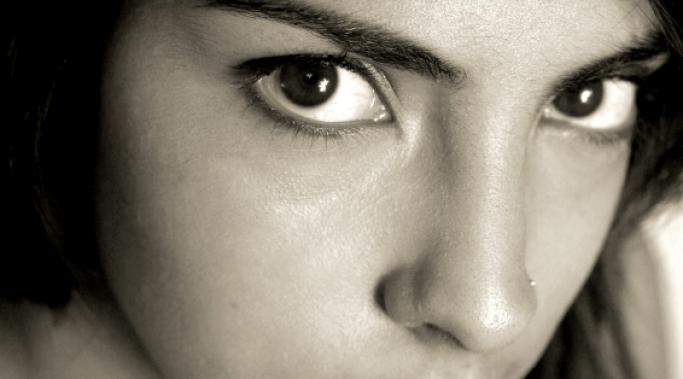Bipolar moods vary in duration by person but typically, an untreated bipolar mood can last months or even years. All a bipolar disorder diagnosis requires is the presence of one manic/hypomanic mood episode and one depressed mood episode. This means that a person could be in a year-long depression and have only experienced one week of mania, a year ago, and still qualify for a bipolar diagnosis.
This is much to the surprise of many as there is a pervasive belief that bipolar disorder is about frequent “mood swings.” However, simply “being moody” is not indicative of bipolar disorder.
Being Crazy
We all have parts of our lives that we wish were different. One might wish her boyfriend hadn’t cheated on her. One might wish that his boss wasn’t so micromanaging. One might wish that she wasn’t bipolar. And so on. One might feel that these situations are unfair.
And sometimes when experiences arise around these situations, we react, not to the situation itself, but to how we wish the situation were and this gets in the way of making healthy choices.
Recently, Karl Shallowhorn of our Debunking Addiction blog wrote a post called, Am I An Alcoholic? This got me to thinking about another question that people ask: Am I mentally ill?
This is a good question. It’s a good question because, by and large, people don’t want to be considered “mentally ill” so they want to know if they meet the definition.
Recently I was contacted by someone who was unfortunately going through a divorce. He felt that his spouse left him because he was bipolar. He asked me the question that so many people with a mental illness have asked themselves: I’m bipolar – will anyone ever love me?
Well, I can’t tell the future, but I do know a few things about love.
The first thing I thought of this morning was killing myself. Literally, as consciousness slowly overtook my brain thoughts of suicide were all that were there.
It’s a bad day.
A while back I wrote on a campaign that was working to change the face of mental illness. It presented real, live people with mental illness that challenged the assumptions that people might have about mental illness. Namely that we’re all unemployed, unsuccessful, useless crazy people.
Now, I did have some problems with the campaign but I applauded their attempt to get people to realize that mental illness is about real people and that each person with a mental illness is an individual with all the possibilities of any other individual in our society.
And I found myself putting my own face on mental illness, bipolar disorder, just the other day. I did it by using the phrase, “. . . people with bipolar, just like me.”
I am not an angry or an aggressive person. This is not to suggest I don’t have my moments, as we all do, but overall, I have far fewer issues with anger than most people I know. There are lots of reasons for this, I’m sure many have to do with my psychology the way I view anger (I view it as pointless and particularly undesirable).
Nevertheless, it seems that people with bipolar disorder do, on the whole, have anger issues. I’m a bit surprised to hear this as anger is not a diagnostic feature of bipolar disorder, but people write in again and again and talk about either having bipolar and being very angry or being with someone who has bipolar and this partner being very angry.
But are these just anecdotal accounts or do people with bipolar disorder have aggressive and angry tendencies?
After reading my last post, Starting Conversations About Bipolar Disorder (When You Don’t Have Bipolar), a commenter requested a similar piece on how to start conversations on mental illness when you do have bipolar disorder. I thought this was a good question as it’s as hard for people with a mental illness to bring up this tough subject as it is for those around us. After all, we don’t want to frighten people or get into major emotional upset.
So are there things to consider when bringing up bipolar disorder with people who don’t have a mental illness?
In one year I write over 100 blog articles for Breaking Bipolar. I’m honoured to say that many people have responded to this writing and it has spawned many great conversations. Popular topics this year ranged from self-harm to passing down of bipolar to your kids to the understanding of mental illness.
Check out these popular articles you might have missed.
Since I’ve started writing for HealthyPlace I’ve learned a lot about what you’re not supposed to say about mental illness. Some classics are the word “crazy” and not referring to oneself as “bipolar” directly.
In other words, I’m not allowed to say I’m a crazy bipolar.
There are many other things I’m not allowed to say too. “Mental health” can only be used in some cases whereas “mental illness” must be used in others. And then there’s “behavioural health” and the myriad of rules around talking about suicide. One could get permanent writer’s block worrying about ticking off some group of people who care about some specific word.
So I have a rule. I do what I want. And I tick off some people. It’s not on purpose; it’s just that if I didn’t, how in the heck would I write?








![MP910218832[1]](/sites/default/files/styles/blog_listing/public/uploads/2013/01/MP9102188321-1024x684.jpg?itok=DRi_Ifa_)
![MP900404982[1]](/sites/default/files/styles/blog_listing/public/uploads/2012/11/MP9004049821.jpg?itok=yUCTqWP9)